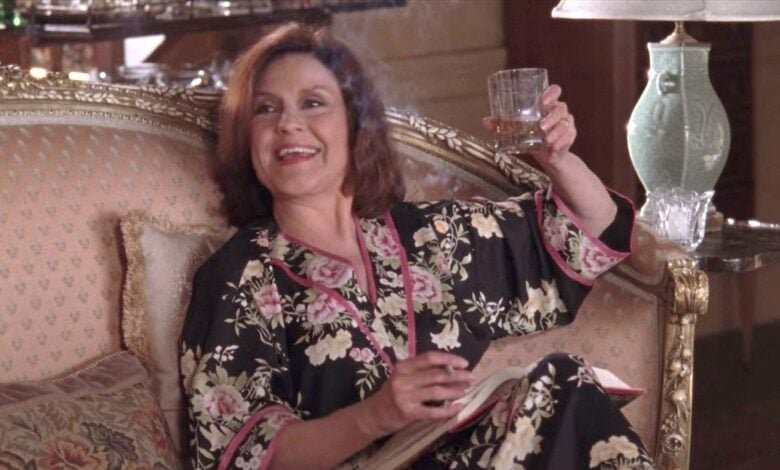
TV villains are often the characters we love to hate, but some of them are just so relatable that we can’t help but root for them in a twisted way.
Take someone like Killmonger from Black Panther or Loki from Thor – they’re complex characters with motivations that, while not exactly heroic, make sense in their own weird (albeit somewhat logical) way. People like them because they’re not your typical bad guys; they have depth, charisma, and sometimes even a hint of tragedy that makes us empathize with them despite their villainous deeds.
It’s that mix of charm and darkness that makes these villains so compelling and relatable to many viewers. So strap in for these TV shows with bad guys you’re going to hate to love!
Negan in The Walking Dead
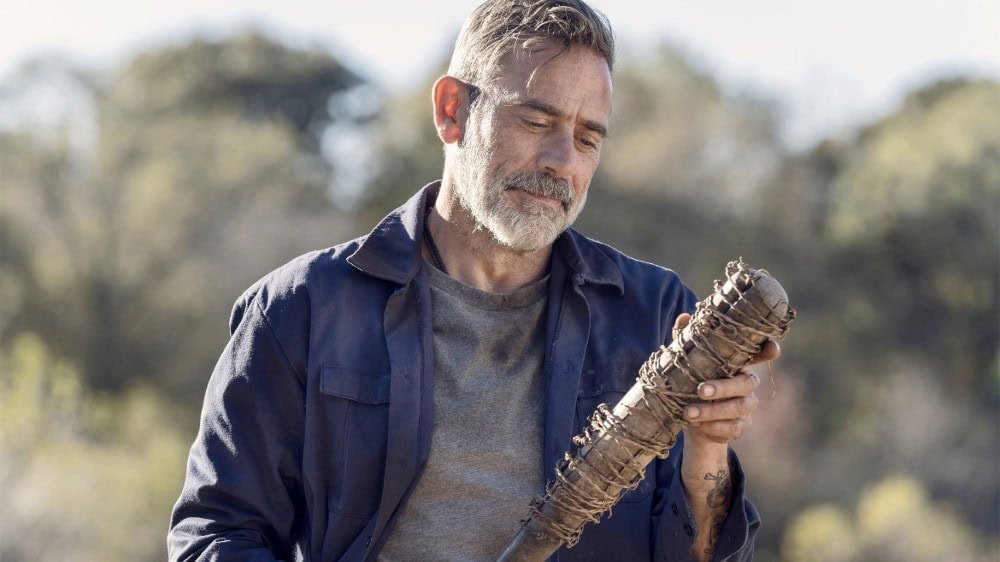
Negan from The Walking Dead is a villain who leaves a lasting impact. He’s ruthless and brutal and has no qualms about using fear to control others.
What makes him a compelling character, though, is his charisma and twisted sense of justice. He’s not just evil for the sake of it; he genuinely believes he’s maintaining order in a chaotic world. His code of conduct, as twisted as it is, creates a strange kind of loyalty among his followers, making him both feared and strangely respected.
Despite his despicable actions, Negan’s complexity and the occasional glimpses of vulnerability make him a villain that viewers can’t help but find fascinating and oddly relatable.
Personally, though, I don’t think I could ever forgive him for what he did to Glenn!
Chuck McGill in Better Call Saul
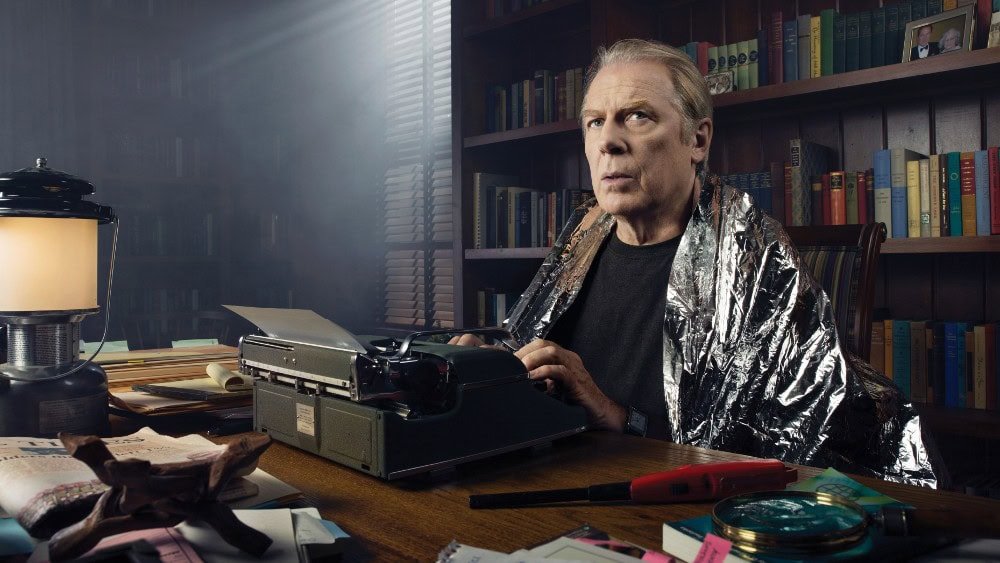
Chuck McGill perfectly captures the nuanced aspects of a villain. He presents himself as a brilliant, successful lawyer on the outside but behind the scenes, he is a jealous and resentful man who constantly tries to ruin his brother’s career.
He’s a sympathetic villain because of his internal conflict and vulnerability. His struggle with illness, particularly electromagnetic hypersensitivity, gives him a deeper level of complexity.
Chuck is a tragic figure in his own right because a great deal of his antagonistic behavior stems from his fear of being perceived as weak or inferior. We relate to his inner turmoil and comprehend the reasons behind his evil deeds, effectively blurring the lines between right and wrong.
Yelena Belova in Hawkeye
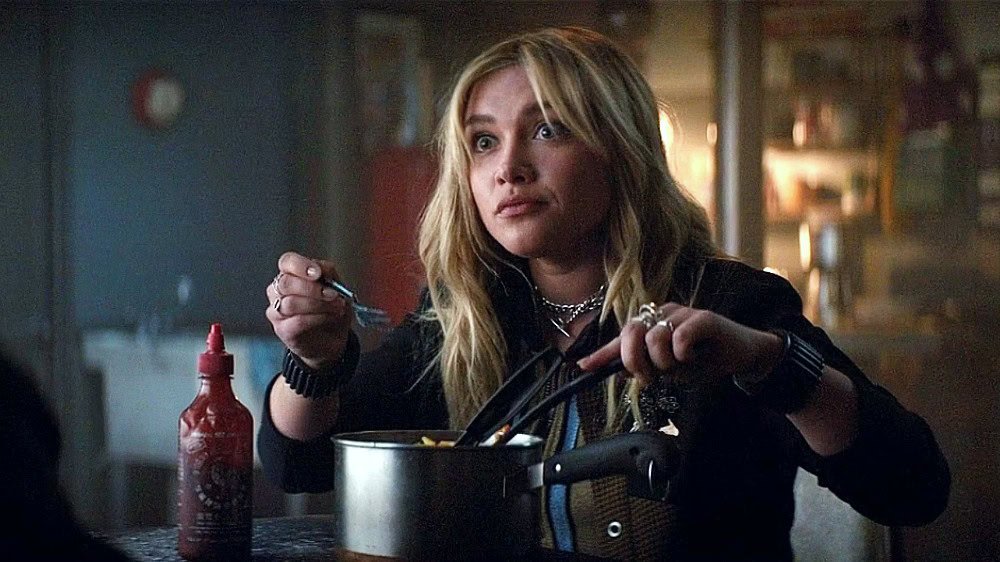
We’ve talked about villains, but some would argue that villains are sometimes simply just the anti-hero – and potentially even a hero in some people’s eyes!
Yelena is a skilled assassin with a complex background, having been trained by the Red Room to be a formidable operative. However, her motivations and actions align more with seeking justice and truth rather than being a straightforward villain.
She’s not blindly loyal to any side but rather driven by her own sense of right and wrong. While she may have a history as an antagonist, her evolution in Hawkeye paints her as a multifaceted character with noble intentions, making her more of an anti-hero than a villain in the series.
Moriarty in Sherlock
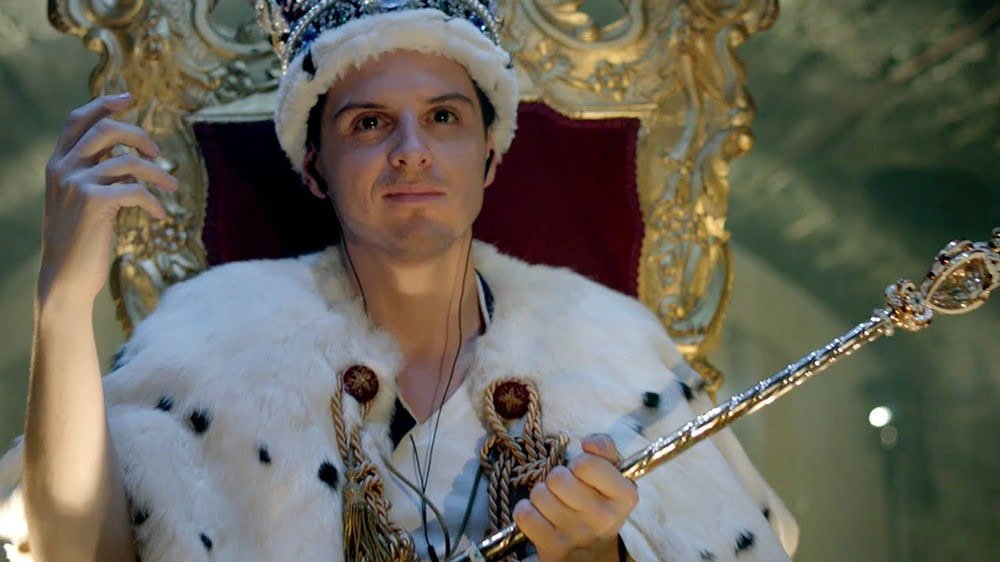
In Sherlock, Moriarty is a fascinating antagonist who personifies cunning, intelligence, and unpredictability. He is portrayed as the ultimate adversary of Sherlock Holmes, masterminding complex plots and influencing events from the background.
Moriarty’s unwavering intelligence and capacity for staying one or two steps ahead of everyone else make him an intriguing villain. Despite being a villain, his motivations are rooted in a need for confusion and intellectual challenge that many viewers may find deeply relatable.
His exchanges with Sherlock demonstrate a nuanced partnership based on both respect and competition. Even though they want Sherlock to outwit Moriarty, viewers can’t help but be fascinated by this villain due to his charisma, charm, and dark sense of humor.
Homelander in The Boys
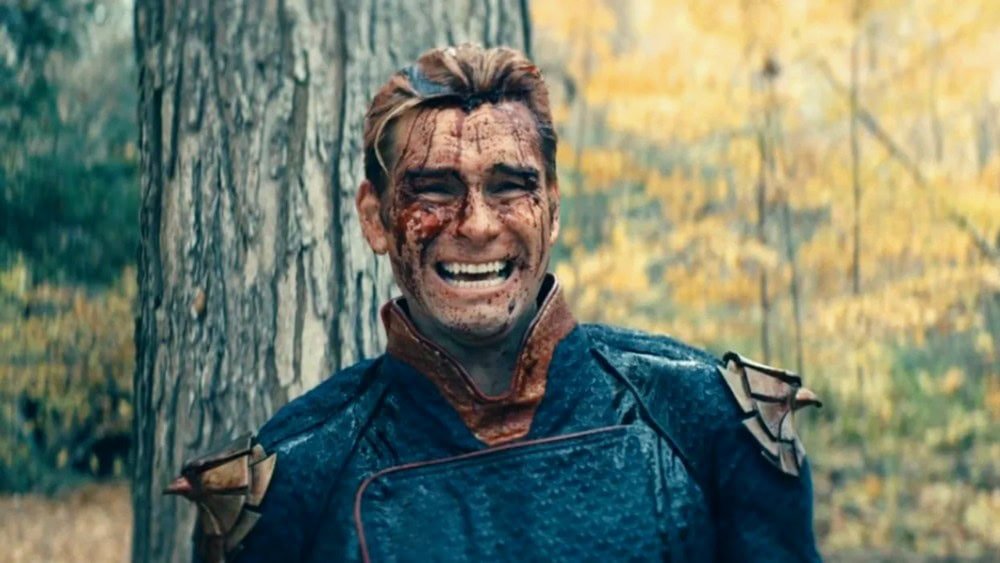
The main villain in The Boys is Homelander – in public, he is portrayed as a hero and a ray of hope as the head of The Seven, but in private, he is a cunning, vicious, and morally reprehensible individual.
Homelander’s deeds, which consist of abuse of authority, murder, and deception, solidify his reputation as a villain. Underneath his flawless facade, though, Homelander’s humanity is what makes him relatable.
He battles loneliness, insecurities, and a deep-seated need for love and acceptance that occasionally comes to the surface during vulnerable times. Because of these glimpses into his mind, viewers are forced to consider the true meaning of heroism and villainy in a world where superheroes are imperfect and morally dubious.
Mr. Gold in Once Upon a Time
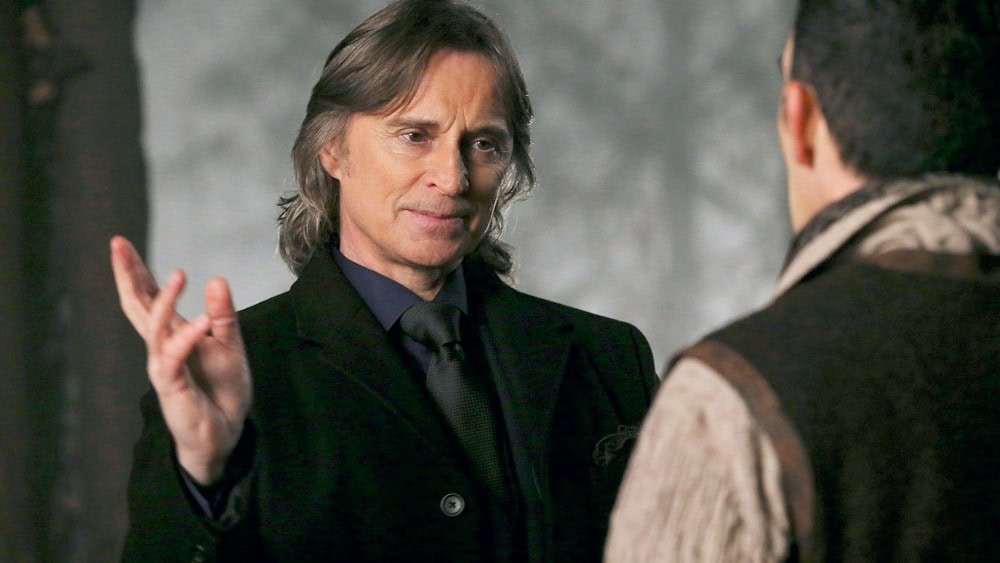
Are you familiar with the story of Rumpelstiltskin? You may have heard the fairy tale as a child, wherein the titular character is the villain in his own story.
In the series Once Upon a Time, he also serves as the cunning and manipulative villain with a penchant for making deals and collecting favors, often at the expense of others. However, we later learn a little bit more about his tragic backstory.
He’s driven by a deep-seated desire for power and control, stemming from a lifetime of hardship and loss. Additionally, his occasional moments of vulnerability and glimpses of humanity, especially in his relationships with loved ones like Belle, make viewers empathize with him despite his villainous deeds.
Emily Gilmore in Gilmore Girls
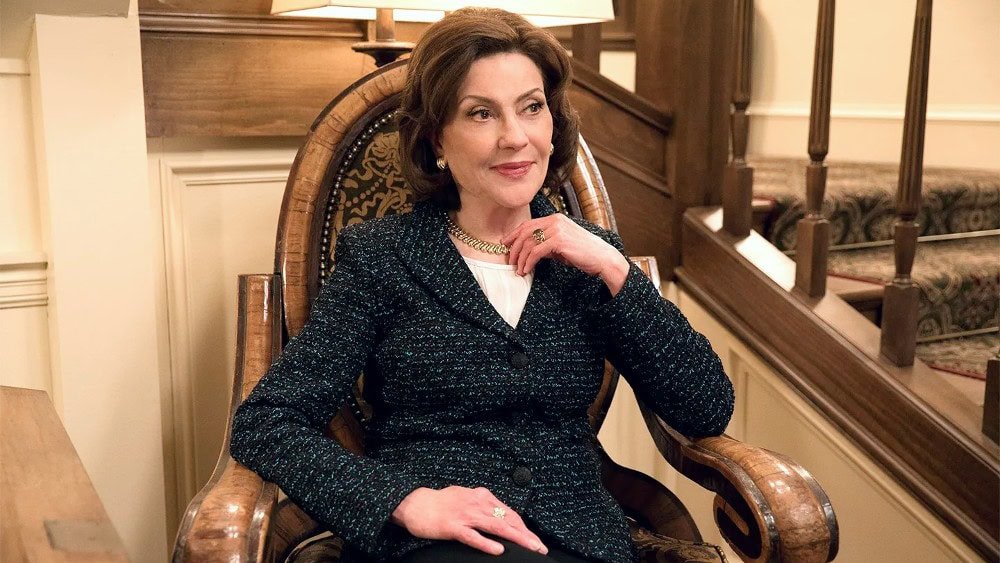
Fans of the pop culture classic Gilmore Girls may be divided on the view of Emily Gilmore as an antagonist in the series.
On the one hand, she’s portrayed as a controlling and sometimes manipulative mother who often clashes with her daughter Lorelai due to their differing values and expectations.
Her desire for control, inability to fully understand or accept Lorelai’s choices and lifestyle. Her actions, and meddling in Lorelai’s relationships or pressuring her to conform to societal norms can be viewed as negative and antagonistic.
On the other hand, she’s not purely evil; her motivations come from a place of love and a desire for what she believes is best for her daughter, even if it’s misguided at times.
Morgana Pendragon in Merlin
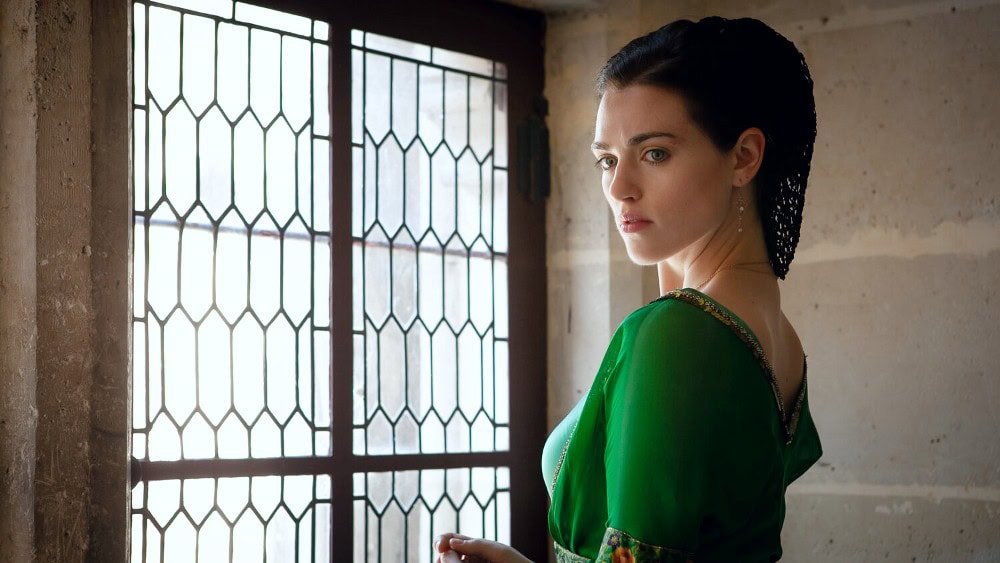
Morgana, who was first shown as King Uther’s ward before being revealed to be Arthur’s half-sister, goes through a transformation from a likable and compassionate figure to a formidable foe.
Morgana’s journey towards villainy in the series is fueled by her feelings of abandonment and betrayal as well as her desire for vengeance against those she believes have wronged her. Her reputation as a villain is cemented by her use of deceit and dark magic to further her objectives.
Viewers, however, can relate to her sense of abandonment, betrayal, and inner turmoil as she wrestles with her identity and decisions.
Toby Flenderson in The Office
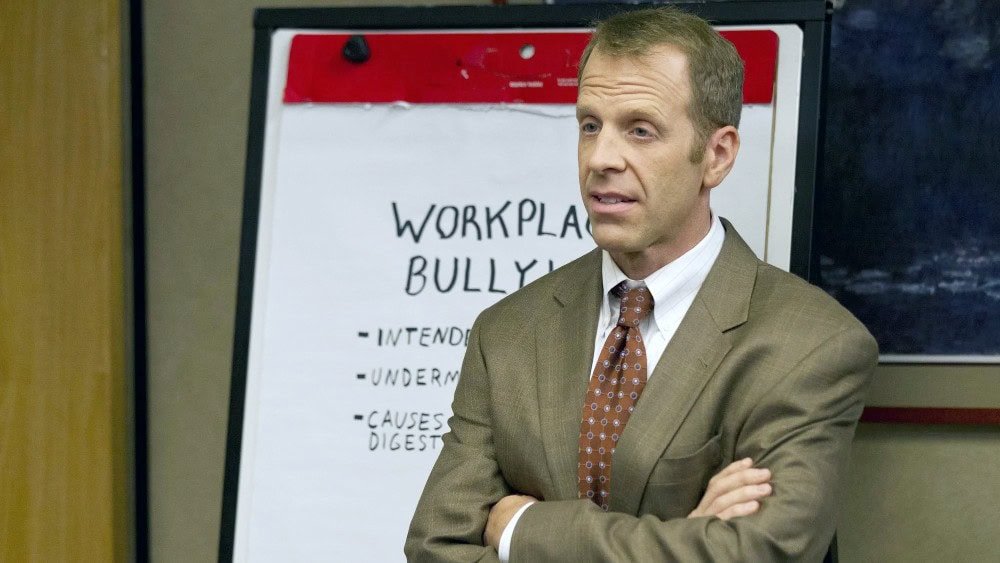
As a longtime fan of The Office, I understand why it would be easy to pin Toby Flenderson as the bad guy. After all, he is the Human Resources guy.
Even though Michael Scott is always playing him out to be the villain, he really is essentially harmless. It’s just that as a corporate HR representative who enforces the rules and tries to maintain order in the office, it sometimes puts him at odds with his coworkers.
He’s a relatable antagonist because of his struggles with the mundane aspects of his job, his unrequited crush on Pam, and his generally unlucky and awkward demeanor.
I definitely empathize with Toby’s frustrations and his attempts to navigate the quirky dynamics of the office environment!
Newman in Seinfeld
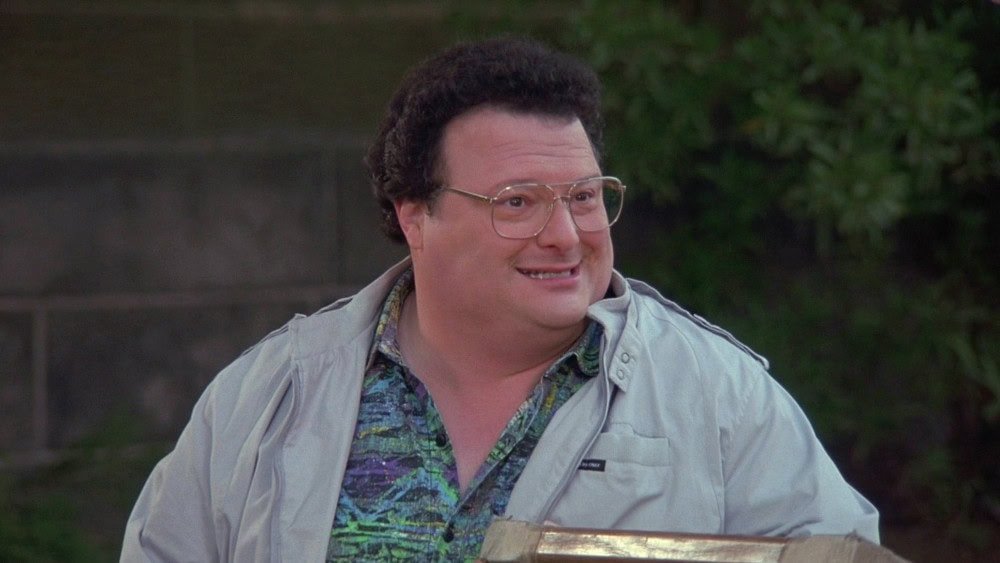
Newman is well-known in Seinfeld for his cheeky and frequently hostile interactions with Jerry and the gang.
Although Newman isn’t your typical bad guy in the sense of being a cunning mastermind, he is a quirky adversary whose plots and shenanigans cause problems for the main characters.
Newman is a villainous figure due to his lack of empathy, dishonesty, and inclination to carry out small-scale acts of disruption. His rivalry with Jerry and his propensity to cause mischief add to the humor of the show.
In spite of his evil tendencies, Newman is a somewhat relatable character, especially when it comes to his frustration with minor inconveniences in daily life.
Lucifer in Supernatural
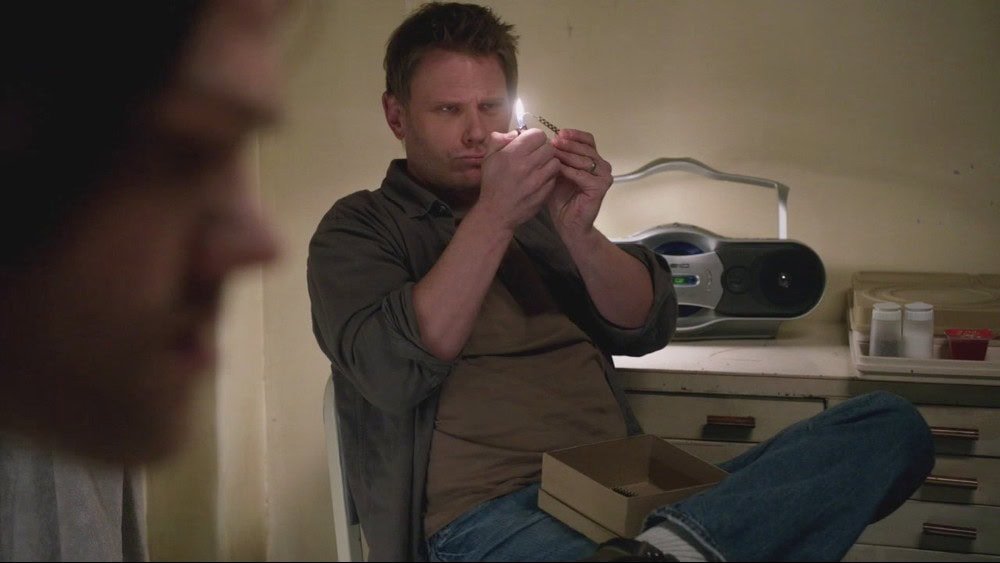
When you hear the name Lucifer, the knee-jerk reaction is to immediately think of the character as a villain. In Supernatural, he’s definitely the antagonist and a central figure in the show’s mythology, representing one of the major threats faced by the Winchester brothers, Sam and Dean.
Lucifer embodies evil and chaos, seeking to bring about the apocalypse and unleash destruction upon the world. His actions, which include manipulation, deception, and using people as pawns in his schemes, firmly establish him as a bad guy.
However, he’s not just evil for the sake of it; his motivations stem from a sense of betrayal and resentment towards his fellow angels and his father, God, as he deals with feelings of abandonment and his desire for freedom and autonomy.
Kai Parker in The Vampire Diaries
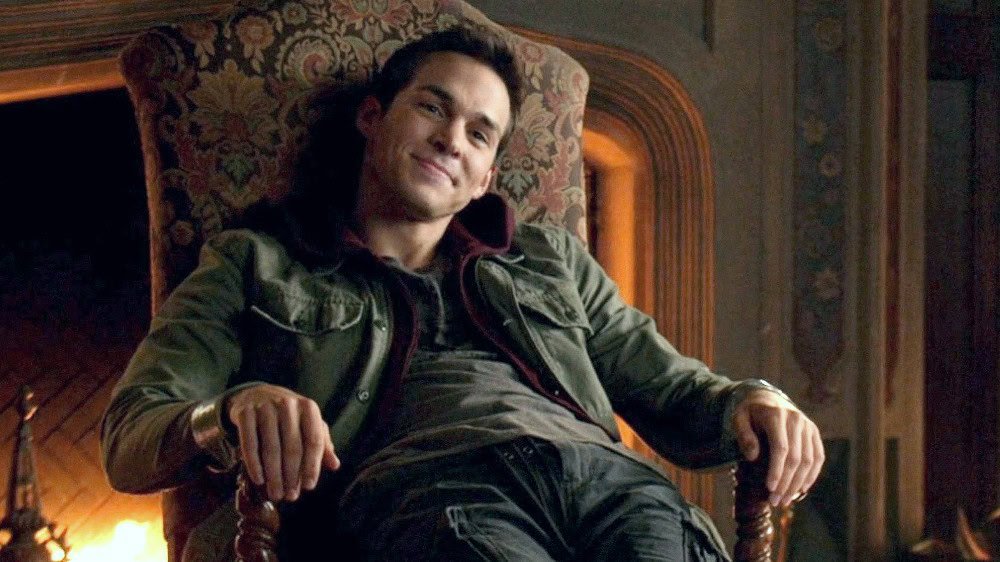
The Vampire Diaries had a lot of villains, but none quite as relatable as Kai Parker.
As a powerful witch and member of the Gemini Coven, Kai is initially introduced as a sociopathic antagonist who stops at nothing to achieve his goals. His lack of empathy, willingness to harm others for his own gain, and propensity for violence are giveaways of his villainous reputation.
However, his troubled family history and being ostracized by his own coven make his loneliness, rejection, and a desire for connection deeply relatable to a lot of viewers, making it much harder to view him as simply the bad guy.
Villanelle in Killing Eve
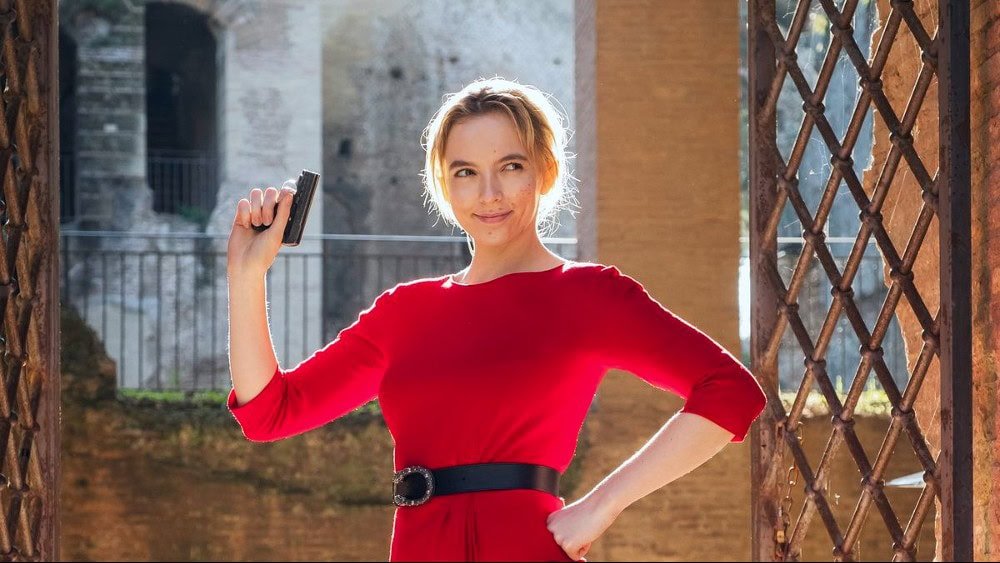
Killing Eve’s Villanelle is an intriguing and complex character who blurs the lines between villain and anti-hero.
As a highly skilled assassin with a penchant for violence and manipulation, she’s surely a dangerous and ruthless antagonist. She presents a constant threat to the show’s protagonist, Eve Polastri, and others who stand in her way.
However, Villanelle still displays the occasional humanity and vulnerability beneath her cold exterior. She struggles with identity, a desire for connection and love, and her complex emotions.
It’s her blend of charm, intelligence, ruthlessness, and relatable vulnerabilities that make her a captivating and complex villain.
Blaine in iZombie
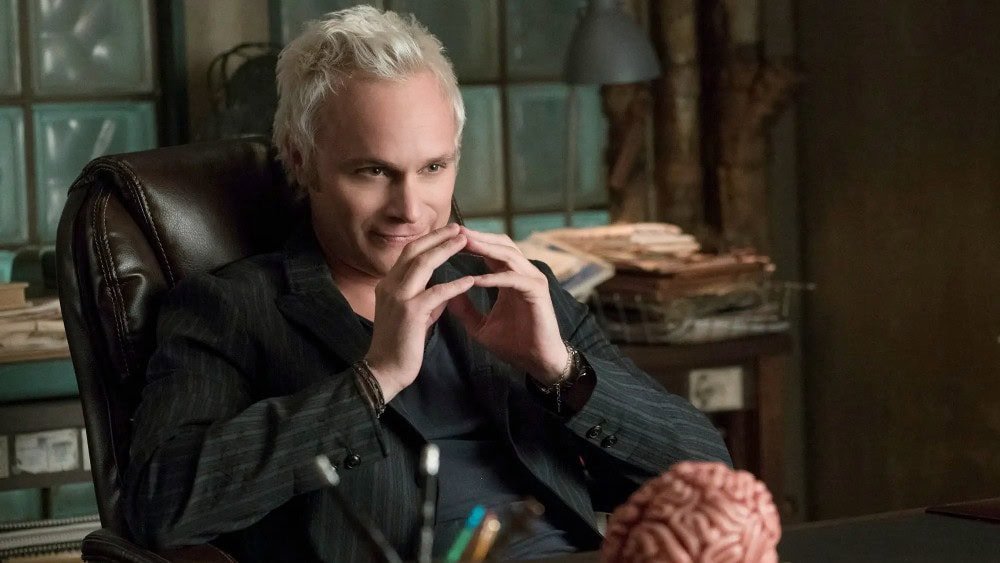
Initially introduced as a wealthy and arrogant businessman, Blaine’s true nature is revealed when he becomes a major player in the zombie underworld, dealing in illicit activities such as selling brains to other zombies.
He’s obviously willing to exploit others, be knee-deep in criminal enterprises, and commit crimes with no empathy towards his victims.
At the same time, iZombie trickles in a touch of sadness, vulnerability, and pain that shaped his descent into darkness. His interactions with other characters, particularly his complex relationships with Liv and Major, show that there is more to his character than meets the eye.
Bob Kelso in Scrubs
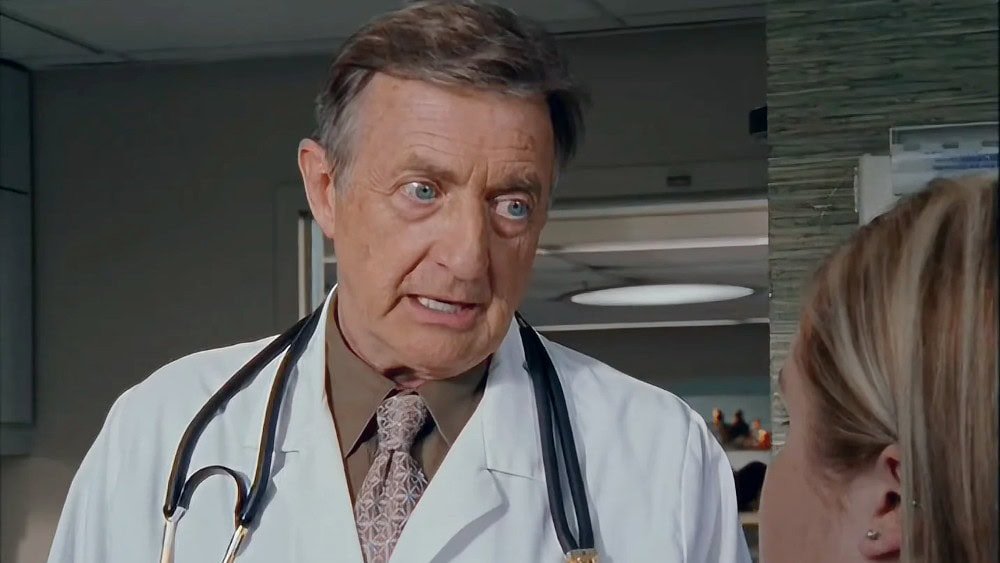
Like many other villains on our list, Bob Kelso from Scrubs can be seen as an antagonist at times, but not necessarily a traditional bad guy or villain.
As Sacred Heart Hospital’s Chief of Medicine, he frequently makes choices based more on financial considerations than patient care alone, which can cause problems with the main characters, particularly J.D. and Dr. Cox.
He sometimes has a callous and cynical attitude, and has a clear preference for hospital profits over the welfare of his patients, which can run counter to the protagonists’ more idealistic viewpoints. But his struggles to strike a balance between his personal and professional challenges and the demands of running a hospital make him just that bit more relatable.
Mona Vanderwaal in Pretty Little Liars
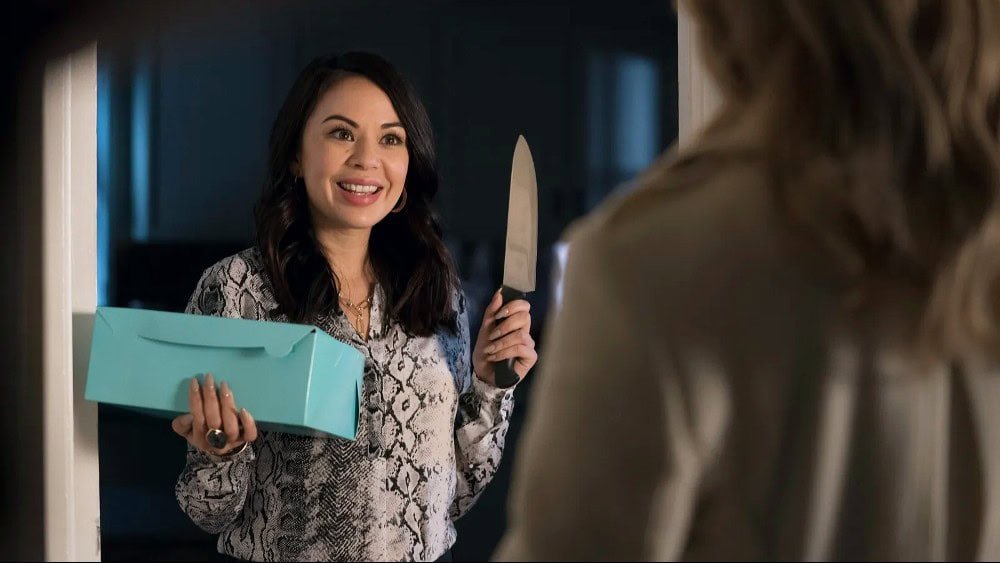
Mona Vanderwaal in Pretty Little Liars starts off as a seemingly harmless, quirky, and nerdy girl but evolves into a complex and compelling villain. In particular, Mona’s transformation into “A” reveals her dark and manipulative side.
However, looking at her backstory and motivations, it’s easier to relate to her feelings of insecurity, loneliness, and desire for acceptance, which drive her to extreme measures to gain power and control.
Additionally, Mona’s evolution throughout the series, including moments of redemption and self-reflection, adds depth to her character and makes her more than just a one-dimensional villain.
Tywin Lannister in Game of Thrones

Try as I might, it’s very difficult to empathize with anyone from the Lannister family but if there’s anything you should know about Game of Thrones, it’s that everyone had some kind of twisted backstory to explain their twisted personality.
In the case of Tywin Lannister, as the head of House Lannister and one of the most powerful figures in Westeros, his actions often prioritize the interests of his family and legacy above all else.
He’s driven by a desire for power, influence, and the preservation of his family’s legacy, which are relatable aspirations even if his methods are often morally questionable. Additionally, Tywin’s intelligence, strategic prowess, and ability to command respect and fear make him a captivating antagonist.